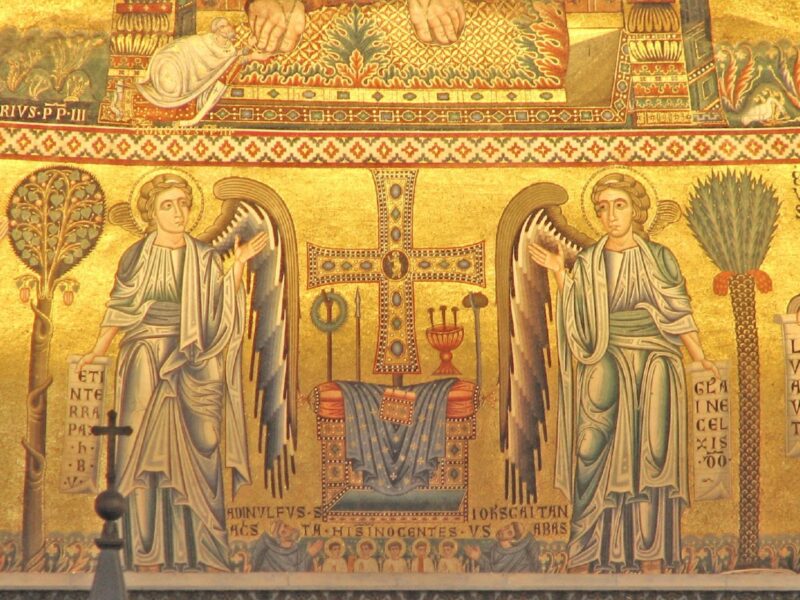
God has no Favourites
Sixth Sunday of Easter. Fr Anthony Axe preaches on the meeting of St Peter and the centurion Cornelius.
In this week’s reading from the Acts of the Apostles we see how the Good News has spread from its origin in Jerusalem and has now reached the coast of Palestine. The story takes place in Caesarea, headquarters of the Roman Empire in Palestine and home of Pontius Pilate. What is more, the Gospel has reached the house of a Gentile, a vivid sign that it is, in accordance with Jesus’s wishes, for all people.
Cornelius is a centurion who already believes in the true God rather than pagan ones. In a dream God told him to contact Peter and we take up the story as Peter arrives at his house. But when Peter enters, Cornelius shows his pagan roots by falling on his knees and worshipping him.
Peter is rather surprised at this and so he should be. One of the basic Gospel premises is that everyone who follows Christ is the brother or sister of everyone else who follows him. This means there are no favourites and no task in the Church that is more valuable or prestigious than any other. Peter has been curing people and converting others to Christ, but he recognises that the power to do this is God’s and not his.
With the advent of Christ, our relationship with God is not now through others but directly through the Lord. He is the new high priest who pleads our cause and who has taught us to call God our Father. It must have been quite a temptation for Peter to take the credit for working miracles but when he sees that God has communicated directly with Cornelius, the Gentile, he is moved to say,
Truly I perceive that God shows no partiality, but in every nation any one who fears him and does what is right is acceptable to him.
Like Peter, today’s priests are the instruments of great miracles too. They bring the grace of God at Baptism and they join the people of God to be the Body of Christ in a special way at the Eucharist. But a priest is a member of the pilgrim Church like anyone else. He hasn’t arrived but like everyone else he is still on his way. Being ordained doesn’t make holiness easier, any more than becoming a teacher, a factory worker or a student makes it any easier to become like Christ. As with any vocation, it is the spirit in which you approach what you do that makes you holy.
Holiness, or what counts for greatness in the Church, is conveyed by humility. Jesus said, ‘Whoever would be great among you must be your servant,’ and Jesus himself ‘came not to be served but to serve.’
So if Jesus himself rejected adulation, what business has any Christian to accept it? Indeed, why should any Christian have to stand for it?
In the first letter of Peter all Christians are exhorted:
Like living stones be yourselves built into a spiritual house, to be a holy priesthood, to offer spiritual sacrifices acceptable to God through Jesus Christ.
The writer goes on to say,
You are a chosen race, a royal priesthood, a holy nation, God’s own people, that you may declare the wonderful deeds of him who called you out of darkness into his marvellous light.
So we are all chosen, we all have a vocation. As part of a royal priesthood we are all royalty in the Church, all deserving of the same honour. And we are all God’s people, all on our way to becoming like Jesus, to becoming holy. We are here not to be served but to serve. And the purpose of all this? In the words of the author of 1 Peter:
That you may declare the wonderful deeds of him who called you out of darkness into his marvellous light.
We are called to be God’s chosen people in order that he may be glorified and manifested in the world.
All Christ’s followers are priests. Christ is the High Priest from whom we all receive our priesthood. It is the task of all of us to be the sacrament of Christ in the world. A sacrament, you’ll recall, is a sign that actually is what it signifies. Christians are the Body of Christ and if we are that totally then we become Christ in the world.


